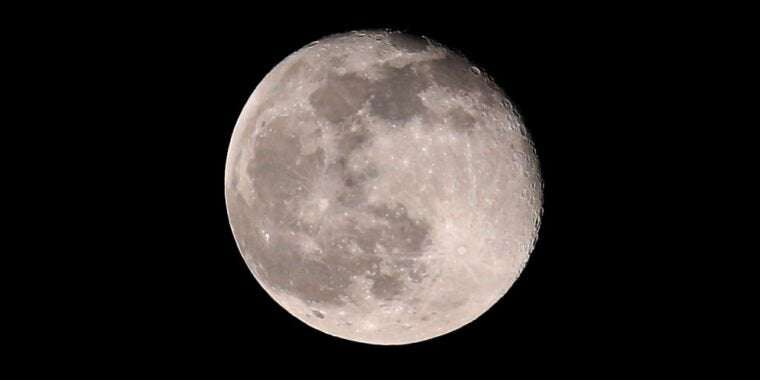The heads of the Chinese and Russian space agencies signed an agreement on Tuesday to work together to build a "scientific" station on the Moon.
Under terms of a memorandum of understanding, the two countries will cooperate on creation of an "International Lunar Science Station" and plan to invite other countries to participate. The agreement was signed by Zhang Kejian, director of the China National Space Administration, and Dmitry Rogozin, the chief of Russia's space corporation, Roscosmos. The agreement was announced by Roscosmos.
Details about the project were fairly sparse, specifying only that the countries would work together to create research facilities on the surface and/or in orbit around the Moon. The goal was both to establish long-term, uncrewed facilities on the Moon and build up the capabilities for a human presence there.
China has previously disclosed its ambitions to build an international lunar station at the South Pole of the Moon, beginning with robotic missions and followed by short-term human missions in the early 2030s. The country plans to establish a long-term human presence at the South Pole—which is believed to contain vast reserves of water ice—during the period of 2036 to 2045. These plans were initially discussed at a meeting of the Subcommittee of the Committee on the Peaceful Uses of Outer Space last year and were reported by Space News.
Previously, the European Space Agency has also expressed interest in partnering with China on future missions to the Moon.
This most recent announcement comes after the United States, under new President Joe Biden, has confirmed that it will continue with the Artemis plan to return NASA astronauts, and those from partner agencies, to the Moon sometime in the 2020s. NASA, too, would like to establish a lunar base and assess the viability of the water resources at the South Pole.
As part of this exploration plan, NASA established the "Artemis Accords," a series of bilateral agreements with space agencies in other countries that want to join the Artemis Program. Essentially, partner nations would need to agree to 10 basic norms as part of their space activities, such as operating transparently and releasing scientific data. Several countries have already signed on, with more expected to follow.
Russia was noticeably absent in signing on to these accords. The nation has worked successfully with the US and other international partners for more than two decades on the construction and operation of the International Space Station in low Earth orbit. However, Rogozin has criticized the Artemis Accords as too "US centric."
This latest Russia-China agreement suggests the enduring relationship that NASA and Roscosmos have enjoyed for decades may come to a breaking point when it comes to deep space exploration. And while the term "space race" is certainly a cliché, that may nonetheless be what NASA and its partners find themselves in with China and Russia when it comes to returning to the Moon.

Fandorin on March 9th, 2021 at 18:33 UTC »
I know it's off topic, but I'm really bummed about how far the Russian space program has fallen. It's basically been stagnating for decades, all the new platforms are small, incremental steps that are years behind competing tech. There hasn't been any notable progress aside from ISS cooperation that's mostly funded by NASA. I grew up on a steady diet of achievements and records and world's firsts, and that's all now stopped. A massive amount of expertise seems to be rotting away with very little to show for it.
SOSharkie on March 9th, 2021 at 18:28 UTC »
I think this is a good thing in general for space exploration. Russia was never going to add significant value to the Artemis program, and if Russia and China start making progress toward a lunar base it will encourage the US and its partners to speed up their own plans. A little competition never hurt anyone (as long as it stays peaceful of course).
PickleSparks on March 9th, 2021 at 16:15 UTC »
Hope I'm wrong but "early 2030s" means it might never get done.